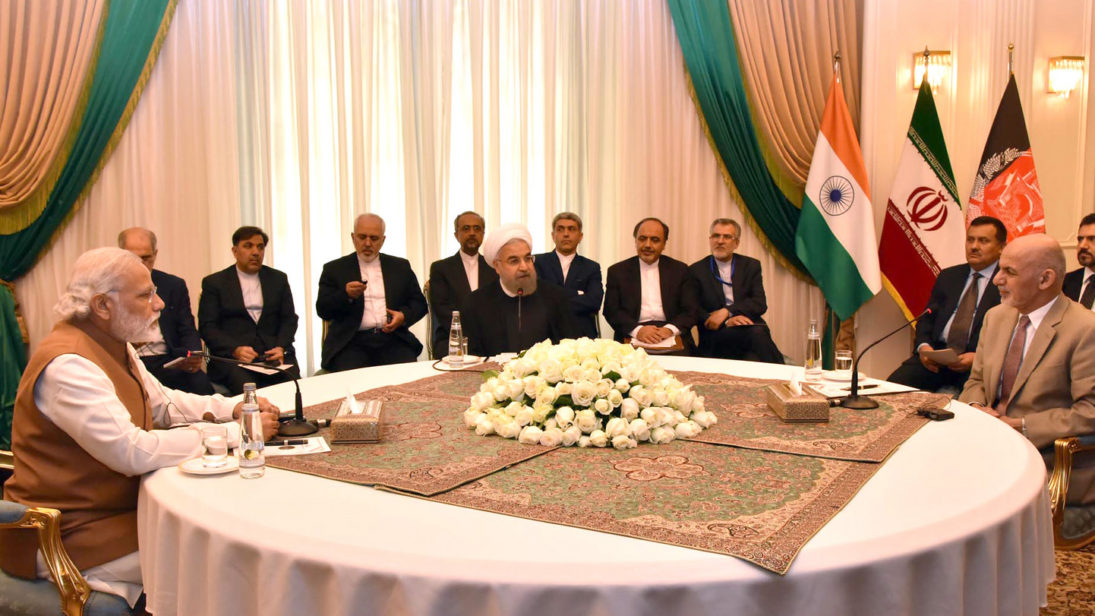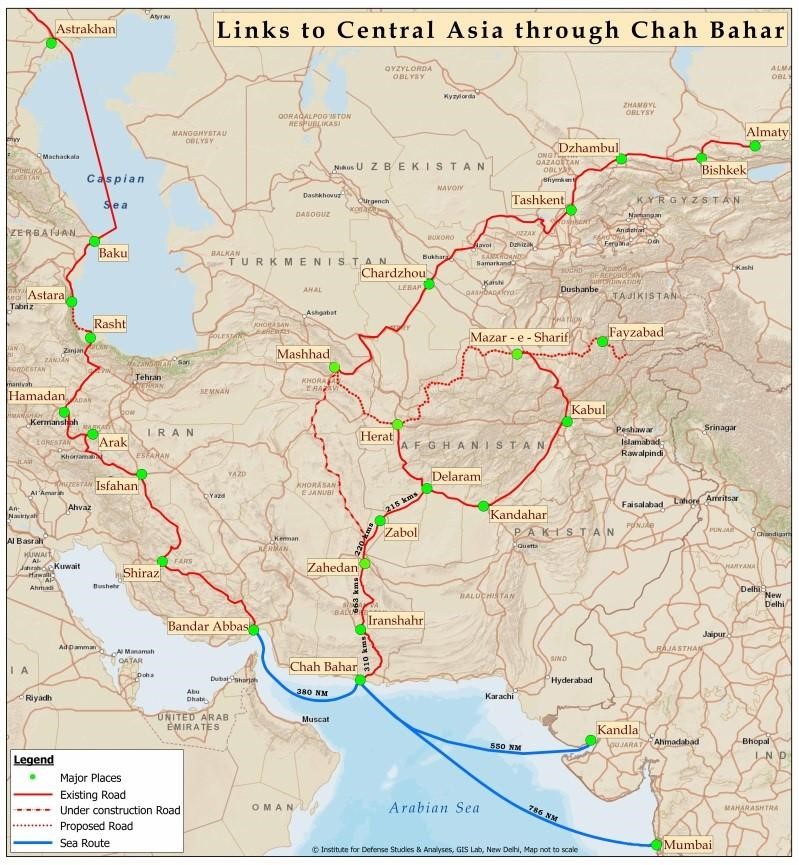
When India, Iran, and Afghanistan signed the trilateral Chabahar Port agreement in May 2016, the countries were hopeful that the transport and trade agreement would “alter the course of history of the region.” However, the fate of the agreement depends on U.S.-Iran relations, since a fresh round of American sanctions on Tehran could spoil this ambitious project. But derailing the agreement would have negative repercussions for the entire region. This is especially true for Afghanistan, where the United States is currently embroiled in a 16-year-old fight against the Taliban.
Development can weaken the appeal of terrorism. A RAND Corporation study by Cragin & Chalk in 2005 highlights two specific ways that a development-centric approach can do so: first, potential terrorist recruits may be attracted to the new economic opportunities that development generates, thus deterring those individuals who may have otherwise been motivated to join a terrorist organization from doing so. Second, development can create a new middle class with a vested interest in maintaining peace in their communities.
By intensifying regional connectivity and trade to unprecedented levels, the Chabahar Port agreement can help stabilize Afghanistan by generating new economic opportunities that will reduce support for terrorism. The United States would do well to abandon its suspicions of the agreement and refrain from undermining it. Instead, Washington should acknowledge that the Chabahar agreement presents a golden opportunity to develop Afghanistan’s economy and support the U.S. mission to defeat extremism in the war-torn country.
Chabahar Port: Strategic and Economic Implications
The Chabahar Port agreement is a tripartite agreement among India, Iran, and Afghanistan to transform the Iranian port of Chabahar into a regional transit hub. Once the port has been realized, Iran is reportedly willing to offer an 80 percent reduction in export tariffs and a 75 percent discount on import duties to Afghan goods. Afghan traders will also have the option of taking advantage of the warehouse facilities at the Chabahar Port. This project complements India’s completion of the Zaranj-Delaram highway in Afghanistan’s Nimroz Province bordering Iran, as there are plans to connect this highway to Chabahar via the Iranian city of Zahedan.

Source: Institute of Defense Studies and Analyses (IDSA)
The Chabahar agreement offers an opportunity to exploit the enormous trade potential that exists among India, Afghanistan, and Iran. Though India and Afghanistan have good relations, trade between the two countries at present is difficult due to Delhi’s poor relationship with Pakistan. The port project would give India increased access to Afghanistan’s untapped natural resource wealth. India aims to build a 900-kilometer rail line between Iran’s Chabahar port to Bamiyan province in Afghanistan, where a seven-member consortium of private companies has been awarded rights to mine vast deposits of iron ore. India will also be able to ship development aid to Afghanistan more effectively. Though the port is not yet fully operational, India recently announced that it would begin shipping wheat to Afghanistan via Chabahar. Even if transit through India’s Wagah border crossing with Pakistan were possible, a railway wagon can only carry 15 tons of wheat at a time while one shipment from India’s Kandla port can transport 25,000 tons. The Chabahar agreement, by making trade and transport more efficient, will both grow the Afghan economy and yield the government much-needed revenue that can be directed towards strengthening the political and security apparatus. A joint statement released by Afghan President Mohammad Ashraf Ghani and Indian Prime Minister Narendra Modi prior to the agreement’s signing envisioned the Chabahar Port’s potential to “provide major impetus to Afghanistan’s economic reconstruction efforts.”
Besides boosting trade and connectivity in the region, the Chabahar agreement has the potential to pay strategic dividends for Afghanistan as well. It will give Afghanistan alternate access to the Indian Ocean, thereby reducing its dependence on the port of Karachi and granting greater autonomy to Afghanistan when dealing with contentious issues like the Durand Line and terrorism. Additionally, the Chabahar Port would inextricably link India—one of the United States’ closest partners in Asia—to Afghanistan. Indian goodwill in Afghanistan could possibly be utilized for swift execution of developmental projects despite hostility.
The Chabahar agreement also has the potential to aid counterterrorism efforts in the southern portion of Afghanistan, in which the Taliban has typically maintained a strong presence. For instance, the Taliban are either contesting or controlling large portions of Nimroz province. Nimroz is geographically proximate to the Taliban strongholds of Kandahar and Helmand. In the second Indo-Afghan Joint Working Group held in March, the Afghan government proposed utilizing Afghan labor to develop the Chabahar port and further requested India to assist with the technical and non-technical training of their port-related services. If India agrees to the proposal, the employment opportunities generated by the Chabahar Port agreement may be an effective antidote to extremism in these terror-stricken regions.
Reforming the U.S. Approach to Chabahar
The United States, especially under the Trump administration, continues to view Iran as a “rogue state.” President Trump has termed the nuclear deal an “embarrassment” to the country, despite Iran’s technical compliance with the terms of the agreement negotiated under the Obama administration. This displeasure has manifested in the form of sanctions on Iran. The United States’ renewed hostility towards Iran has rendered the Chabahar Port agreement problematic and delayed its progress since the prospect of renewed sanctions has made India cautious of furthering its economic engagement with Iran.
If the United States enforces new sanctions on Iran, it could place Afghanistan on the receiving end of a vicious cycle of regional destabilization. New Delhi should persuade the United States to see the Chabahar Port agreement for what it is: an opportunity to eradicate extremism in Afghanistan and bring peace and stability to the region.
***
Image: Narendra Modi via Flickr


